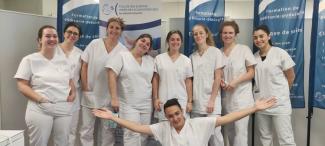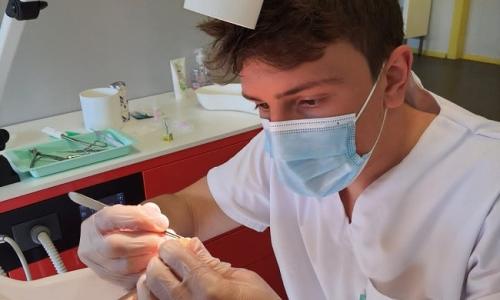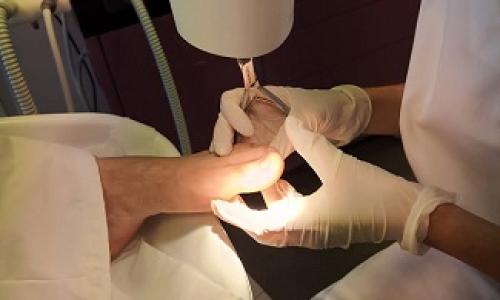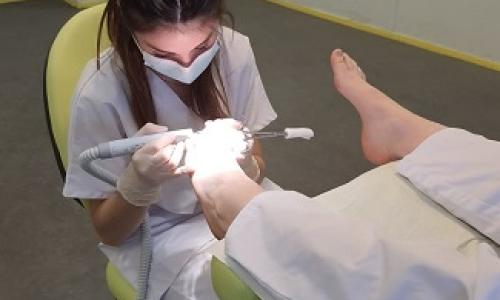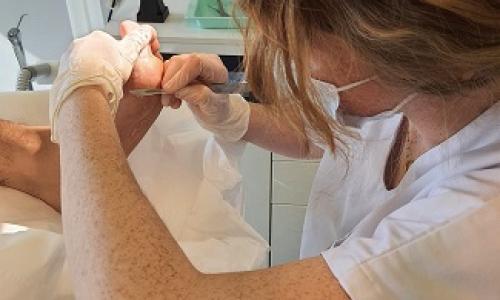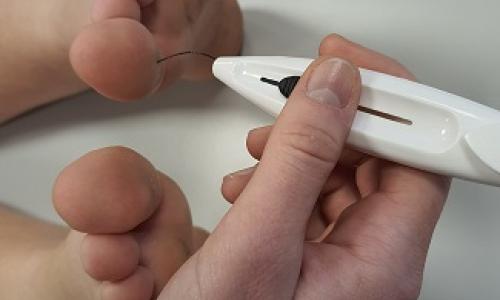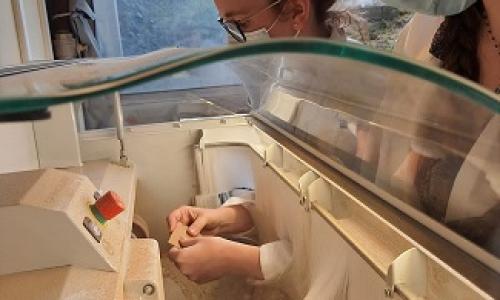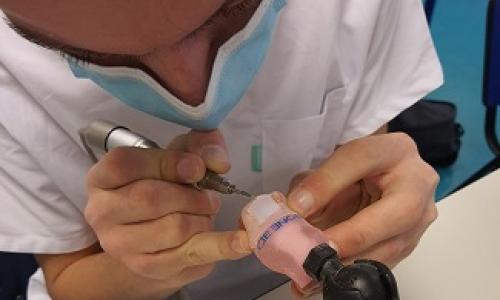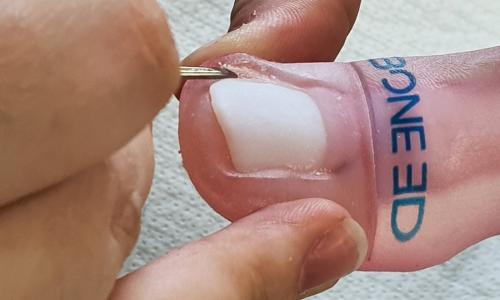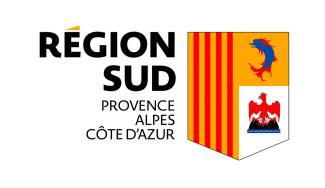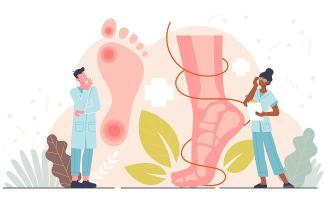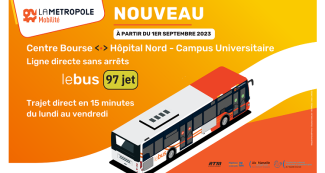The degree is granted over a three-years training programme and prepares for the profession of podiatrist.
What is a podiatrist?
Podiatrists are specialist health professionals with expertise in foot care, devoted to the treatment of skin and nails conditions, static and dynamic posture disorders, for patients of all ages (children, eldrely, athletes, etc.).
Their scope of practice includes diagnosis and treatment, taking into account the overall health of patients. Furthermore, they can prescribe medication.
The podiatrists aim to diagnose and adress health conditions, static and dynamic disorders, through clinical examination, walking technique analysis, audits of the patient environment, and individual advice.
They design and manufacture medical devices (foot, toes, nails orthosis). They also specialise in foot care related to specific medical conditions : diabetic, arterial, arthrosic and arthritic pathologies.
Finaly, they play an important role in supporting people suffering from degenerative or age-related diseases.
96% of podiatrists are self-employed, in private medical offices and health centres.
How to apply?
See the requirements and admission procedure, and the university registration procedure.
Our training is organizing open days ! Make an appointment to book a visit:
- Email : smpm-podologie@univ-amu.fr
- Tel : 04 91 69 87 38
We are located on the North campus of the Faculty of medical and paramedical sciences.
Training organization
The degree in podiatry is granted after 3 years (6 semesters and 180 ECTS).
-
Knowledge to be acquired
1 - Physical, medical and biological sciences
2 - Humanities, social sciences, law and management
3 - Sciences and foundations of podiatry
4 - Clinical and therapeutic practices in podiatry
5 - Methods and working tools
6 - Integration of knowledge and professional development -
Skills to be acquired
1 - Analyse and evaluate a situation and make a diagnosis in the field of podiatry
2 - To conceive, lead and evaluate a therapeutic project in podiatry
3 - To implement therapeutic activities in the field of podiatry
4 - Design and conduct a counselling, educational and preventive approach in podiatry and public health
5 - Communicate and conduct a relationship in an intervention context
6 - Evaluate and improve professional practice
7 - Research, process and analyse professional and scientific data
8 - Manage a structure and its resources
9 - Cooperate with other professionals
10 - Inform and train professionals and trainees
Education and internships
Theoretical courses represent 815 hours (425 hours of lectures - 390 hours of tutorials). Clinical and situational teaching represent 270 hours.
Teaching through simulation
Simulation-based teaching is at the heart of the training.
Procedural simulation
The simulation of care procedures aims to place the students in an intervention situation. The simple or complex technical gestures are broken down, each step is described, the objectives and warnings are explained.
Thus, the procedure is repeated until the steps are perfectly acquired, without the patient and their feelings. The technical gestures are then placed in their intervention context, thanks to the description of clinical cases and typical work environments.
Teaching through role-playing
Relational aspects are an important part of the care-giver relationship. However, students entering a nursing programme do not necessarily have sufficient emotional experience and may find it difficult to project themselves as carers.
Simulation through role-playing, using actors, can help them get used to being in the forefront as decision-makers and caring for patients. Role-playing allows them to practice situations that are sometimes uncomfortable for patients, to become aware of the importance of non-verbal communication, etc., but also to get feedback from other students, and to be guided by the teacher.
Tuition costs
In case of admission, the fees per year of study are :
- student and campus life contribution (CVEC): 91€
- university registration fees: 170€
- tuition fees: 2 500€
Continuing education : 5239€
Bourses et aides financières
En cas d'admission à la formation, les étudiants peuvent faire une demande de bourse auprès de la Région Sud PACA « dans les filières sanitaires et du travail social ». Les conditions d’éligibilité doivent être réunies avant le démarrage de la formation. Si vous n’êtes pas éligibles, d’autres financeurs peuvent intervenir - voir l'annuaire des aides individuelles régionales.
La bourse prend en charge les droits d'inscription universitaire (pas les coûts de scolarité).
Note : les étudiants en pédicurie-podologie n’ont pas accès aux bourses du CROUS.
Student intranet
For more information access the student intranet.
Student intranet
For more information access the student intranet.
